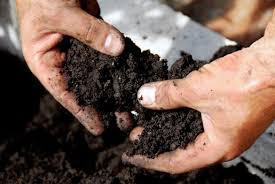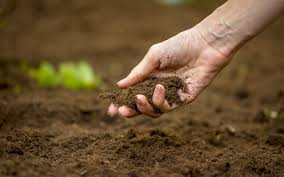Soil fertility is necessary because characteristically, tropical soils have been known to be fragile due to the very high extreme weather conditions it faces. Such extremes include rainfall, sunshine and other weather conditions. This situation has led to high rate of leaching, acidity, erosion and most importantly nutrient depletion.
These have made our soils to become vulnerable and so delicate (poor) that if we do not improve its fertility status, it cannot continue to support food and fibre production for our increasing population.
Therefore, soil is an important natural nutrient medium that supports crop growth and development and good root development to enable the plant complete its crop cycle.
It provides also a habitat for soil organisms important in agriculture especially those associated in carbon, nitrogen and phosphorus cycling and oxidation/reduction processes in soil.
Hence the fertility status of the tropical soil is essential to enhancing good crop quality and production.
Definition of Soil Fertility
A fertile soil may be defined as that which has the power to supply the right amount of nutrients to the plants and in the right proportion.
The fertility of an agricultural soil can also be defined simply as its capacity to produce the crops desired, emphasizing the idea that soil fertility is an outcome of the effects of many kinds of living organisms, and chemical and physical processes acting on the inert parent materials from which soil is made’.
Soil fertility is the level or status of a given soil with respect to its ability to supply the needed nutrients for plant growth. In effect, it is the nutrient supplying power of the soil.
It is also defined as the quality of nutrients which enables or helps a given soil to make provision of the right nutrients in the right quantity and in the right proportion for growth of a specific plant or crop when all necessary environmental factors such as temperature, water, pH, light are adequate/favorable.
Soil fertility is the result of the interactions between the biological, chemical and physical properties of soil due to soil type and land use, and the effects of climate.
Read Also : Complete Guide to the Best Lawn Soils (Sandy Soil, Clay Soil, Loam Soil, Silt Soil)
It is related to the potential for the sustainable production of crops and animals and can be assessed and/or described in various ways.
Soil fertility can be viewed as an ecosystem concept integrating the diverse soil functions, including nutrient supply, which promote plant production. Many soil properties interact to impact on crop growth, with both trade-offs and compensating effects.
Importantly, economics plays a critical role as farmers will only strive to maintain soil fertility through appropriate practices if it pays the farmer, preferably in the short term.

Concerns about soil degradation have highlighted the need to include a much wider range of potential functions of soil alongside plant production within any definition of soil quality and soil fertility is now considered as one aspect of the broader concept of soil quality.
Factors Affecting Tropical Soil Fertility
It is important to know and fully understand the chemical, biological and physical properties of a soil as well as their relationship in the soil plant atmosphere continuum that control nutrient availability.
One of the biggest constraints in soil fertility is to develop and implement soil, crop and nutrient management approaches that improve the quality of the soil, water and air.
Therefore, the factors that influence tropical soil fertility include those that affect plant growth and development. Such factors include:
- PH of soil (soil reaction).
- Climate factor especially temperature and precipitation (moisture).
- Activities of soil micro-organisms.
- Soil organic matter content.
- Nutrient imbalance.
- Light energy (Radiant energy).
- Soil type and Soil Structures.
Key Limitations of Tropical Soils
With increasing knowledge about the extent and distribution of soils in tropical regions, limitations for agricultural production and other purposes could be quantified.
It was found that tropical soils are as diverse and varied as those of temperate regions, this makes it difficult to generalize about their distribution and limitations for agriculture and other uses.
Some workers (Moormann, 1972; Eswaran etal.1997; Sanchez etal., 1982) have made estimates based on the Fertility Capability Soil Classification System about tropical soils limitations.
Tropical Soil Limitations

Mineral stress, defined as nutritional deficiencies or toxicities related to chemical composition or mode of origin, affects about one-fifth of the soils in Africa
That two-thirds of the soils of the humid tropics have low nutrient reserves,
Nearly 60% suffer from Al toxicity and 38% of the land has soils with high P fixation.
Based on the FAO–UNESCO maps, that one-quarter of the soils in Africa have medium to low potential and that more than 50% of the land is fragile and not productive.
In summary, tropical soils are highly diverse, with some soils having a high production potential. However, there are many areas where the soil resources suffer from serious limitations hindering agricultural production and development.
Some soils have a very low chemical fertility, are extremely acid or contain toxic substances, but the exact extent of low-fertility soils and the extent of spare land is.
Read Also : Comprehensive Farming Guide For Starters

